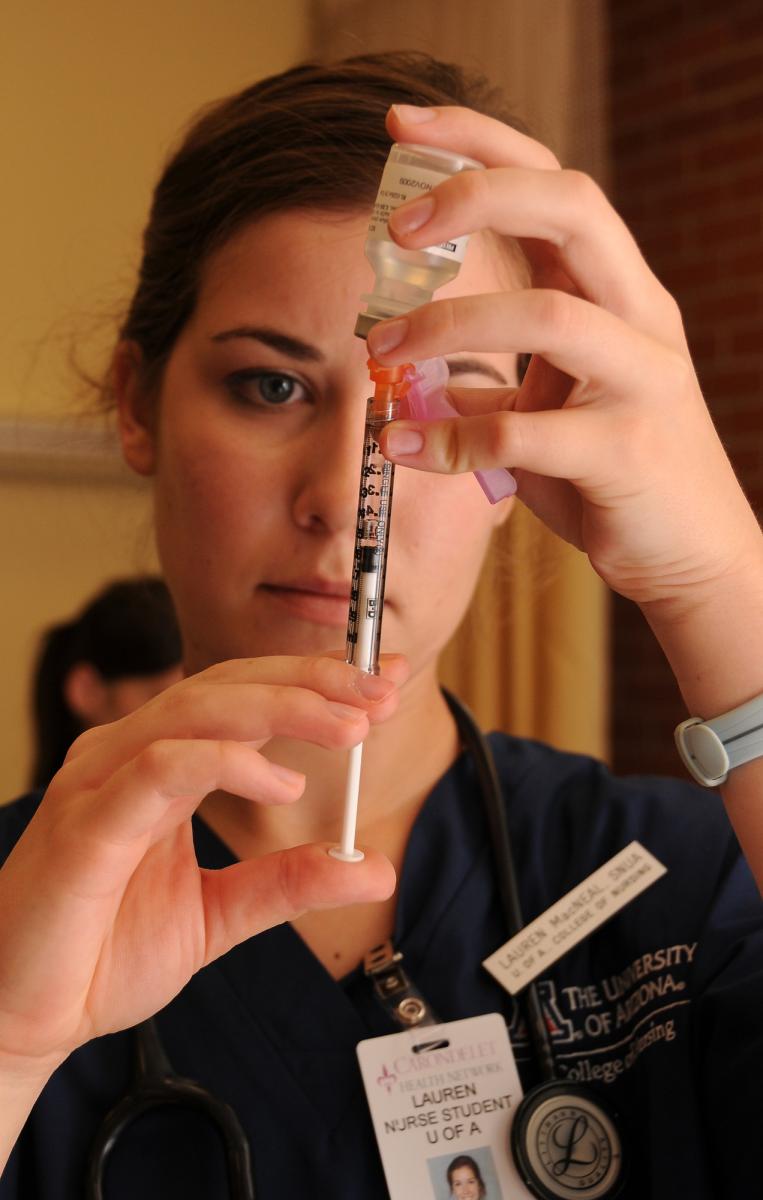UA study finds high rate of vaccination exemptions in Charter Schools
 |
| Photo Credit: Norma Jean Gargasz, UANews |
A study by public health researchers at the University of Arizona finds a high rate of vaccination exemptions in Arizona Charter Schools. The research, Correlates of High Vaccination Exemption Rates Among Kindergartens, was published online in the journal Vaccine today.
The study was designed to identify Arizona schools with high rates of Personal Belief Exemptions among kindergartners, and to determine the degree to which they aggregate across the state.
“Every year the Arizona Department of Health Services tracks county-level vaccine exemption rates. This information is an important indicator of vaccine upkeep, but it is only at the county level. Our study was able to uncover more local pockets of high vaccine exemption that would have been overlooked otherwise,” said Michael Birnbaum, MPH, lead author of the study.
Some of the key findings in the study include:
- Charter schools in Arizona have significantly higher rates of vaccine exemptions than other schools. This is relevant, because Arizona ranks in the top five states in the U.S. for total number of charter schools.
- Higher vaccination exemption rates in charter schools may be due in part due to lack of full-time nursing staff on-site, and highlights the importance of school-based education regarding vaccination.
- As found in other national studies, predominant characteristics of the schools with high exemption rates are a higher proportion of white, middle to upper-class students.
- Vaccination exemptions are clustered statewide. Northern and central Arizona have the highest rates of exemptions.
- Overall exemption rates by school varied widely from 0% up to 68%.
“The reason we chose to study exemption rates in Arizona is because they have tripled in the last decade, and we wanted to know the characteristics of those who choose not to vaccinate so we can target public health messages,” said study co-author Elizabeth Jacobs, PhD, associate professor of Epidemiology at the University of Arizona Mel and Enid Zuckerman College of Public Health.
Jacobs said the next steps are to design and implement programs that demonstrate the safety and benefits of vaccination.
Birnbaum conducted the research as part of his dissertation in the Master of Public Health in Epidemiology program at the UA Zuckerman College of Public Health. He is currently a Programmer in the Infectious Diseases Division at Washington University School of Medicine in St Louis.
Co-authors of the article include Elizabeth Jacobs, PhD and Kacey Ernst, PhD (UA Mel and Enid Zuckerman College of Public Health) and Jennifer Ralston-King (Arizona Department of Health Services).

